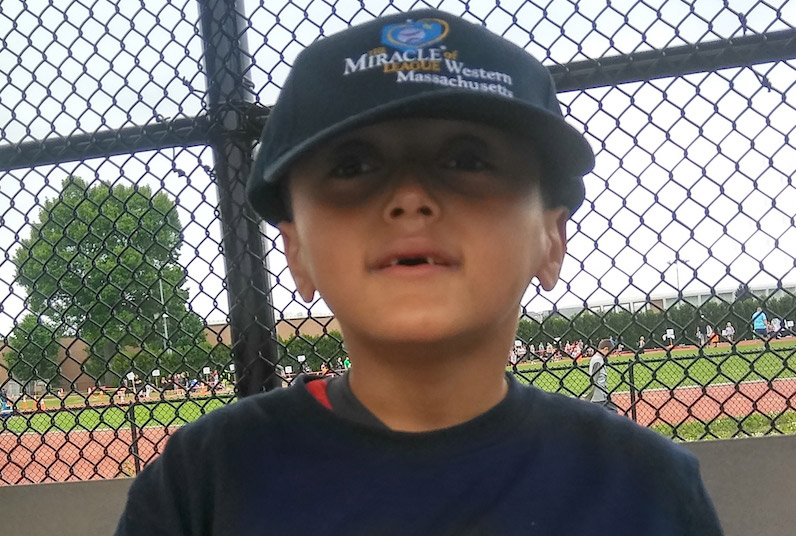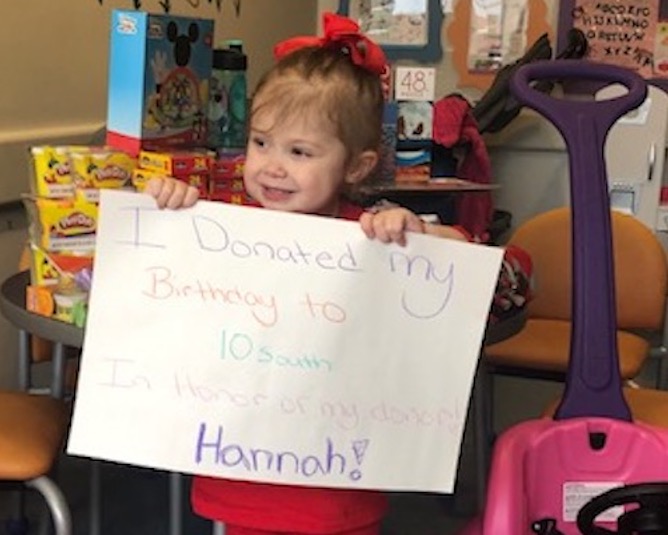Finding ways to give thanks for the gift of life

The holiday season is a time for families to count their blessings. But for Elizabeth Molina-Cordero, the meaning of this time of year — and the gratitude she feels — goes much deeper and lasts throughout the year. Five years ago, her son Julian, who is now 7 years old, received the ultimate gift of life from an organ donor.
The gift that keeps on giving
Elizabeth says it’s hard to put into words the depth of appreciation she has for the donor family.
“While Julian was still in the hospital recovering from the kidney transplant, I wrote to the donor family to thank them. I wanted to get my emotions down on paper while they were still fresh,” she remembers. “I wanted them to know who their family had saved and how they changed our lives so much.”

Her urge to express her gratitude was especially strong because less than a decade earlier, Elizabeth had lost her own mother and her tissue was donated to help others in need. “We got thank you letters from the people our donation had helped. This made us feel so much better. Now that I was on the other side of the situation, I knew I also wanted to reach out and thank Julian’s donor family,” she says, adding, “A lot of families are in pain and are waiting for news that can help them heal.” Writing the letter in the moment can be helpful, even if they decide to wait until later to send it.
A special friendship is born
Her letter was delivered through New England Donor Services, which facilitates the donations and also manages communication between donor families and recipients. The information she shared had a profound impact on the donor family, the Sullivans, who had lost their 31-year-old son Kevin. Even in the midst of their grief, Debra Sullivan says that the letter from Elizabeth provided her family with real comfort.
“It has helped us tremendously to know that he lives on through Julian and the other organ recipient,” she stresses.
Over the past few years, the initial exchange of letters between the two families has grown into a friendship. Elizabeth and her family continue to stay in close touch with Kevin’s family and they often get together in person.
“Julian loves the outdoors and this reminds Kevin’s parents of their son when he was young,” Elizabeth says. Having the chance to recognize such connections further strengthens the bond between two families who are forever linked.
Finding the strength to express thanks
This is such a powerful example of how transplant recipients and donor families can support each other through their journeys, explains Matthew Jared Paek, a dialysis and kidney transplant social worker with the Division of Nephrology and the End-Stage Renal Disease Program at Boston Children’s Hospital. He points out that it’s always a very personal decision if — and how — recipients want to interact with their donor family. But for most patients, regardless of whether they want to build a relationship or want to simply say thank you and move on, expressing gratitude for an organ can be important stage of the transplant process.
He says that for people struggling to find the words to say thank you, there are some concrete things to think about. For instance, the letter can be simple, introducing your child and telling their story. Include the name of the condition, why the transplant was needed, and what type of activities in which your child likes to participate. Such information can often be comforting for the donor family. If you can’t bring yourself to put pen to paper or fingers to the keyboard, Paek says that it is perfectly fine to just sign a thank you card without including any specifics.
Ways other families show their gratitude
Paek also points out that beyond communicating with the donor family, many recipient families come up with their own meaningful ways to honor their donors all year long.

For instance, Lori Savoy, whose daughter Lily received a liver transplant more than 10 years ago, says the entire family makes it a priority to honor their donor.
“Traditionally, we celebrate Lily‘s liver anniversary with a gathering of our family. We often make cupcakes with green ribbons or a cake shaped like a green ribbon to represent organ donation,” Lori says. “I think it’s important to post on social media every year to remind people the importance of organ donation. We always say something about being thankful for Lily’s donor.”
In addition, the family makes charitable donations in honor of the donor to help other children and families.
Performing small acts of kindness
The family of Emily King, who is 3 years old and received a lung transplant in the spring of 2019, has also already found ways to integrate their gratitude into their daily lives, according to mom, Stephanie.

“We choose to honor our donor any chance we can. We donated Emily’s birthday to her donor this year and we choose to perform other smaller acts of kindness in the donor’s name because her family was so selfless in the face of unimaginable loss. Their strength has inspired us to give more freely and be thankful for each and every day,” Stephanie says.
Expressing thanks to donors in a variety of ways
For other families looking to honor their donors, Paek says there are many ways to show their thanks. Here are a few suggestions:
- Light a candle at home or in your place of worship in memory of your donor.
- Plant tree or flower seeds that you can watch grow over the years.
- Relax by the “Tree of Life,” a donor memorial located at New England Donor Services in Waltham, Massachusetts.
- Participate in the Blue and Green Walk held every year to raise money and awareness to support organ donation.
- Volunteer your time to help others in need.
Follow your heart
While these ideas can be a great starting point for organ recipients and their families, Paek reminds people that their transplant journey is a very individual one. Therefore, you should not feel pressured to copy anyone else’s example, but rather, follow your heart to develop your own meaningful ways to honor your donor.
Learn more about Boston Children’s Pediatric Transplant Center.
Related Posts :
-

An act of kindness — Raul and Larry’s journey to a non-directed transplant donation
Acts of kindness can come in many forms, like volunteering or donating to a charity of choice. At 52, Larry loves ...
-

Ductus arteriosus stenting could help severely ill infants with pulmonary arterial hypertension
Treatment for infants who have severe pulmonary arterial hypertension (PAH) is sometimes limited. Because they haven’t physically ...
-

New hospital discharge practices could improve health of infants with bronchopulmonary dysplasia
The chronic lung disease bronchopulmonary dysplasia (BPD) affects a significant number of infants who were born early and ...
-

From Florida to Boston and back again: Reagan’s liver transplant journey
Reagan, 18, is gearing up for her freshman year of college this fall, and she has a solid idea about her ...





